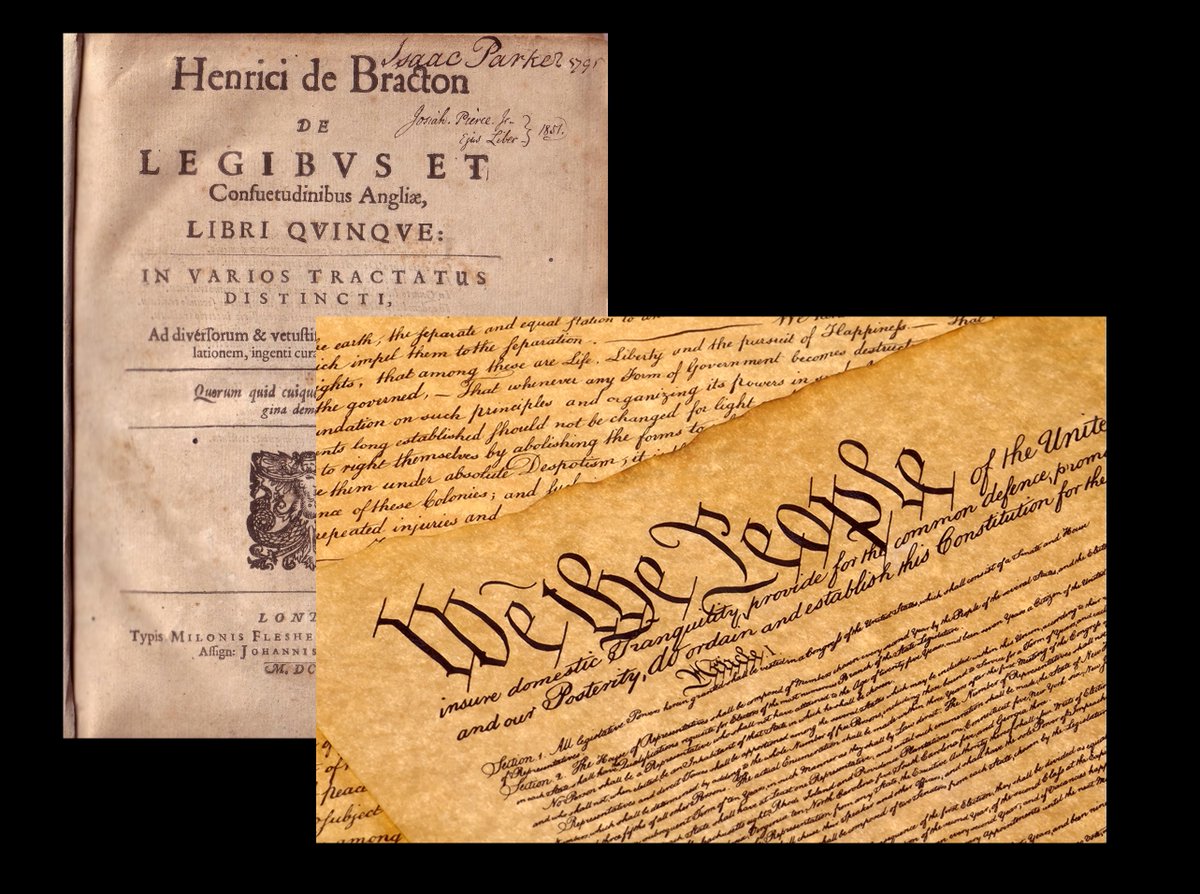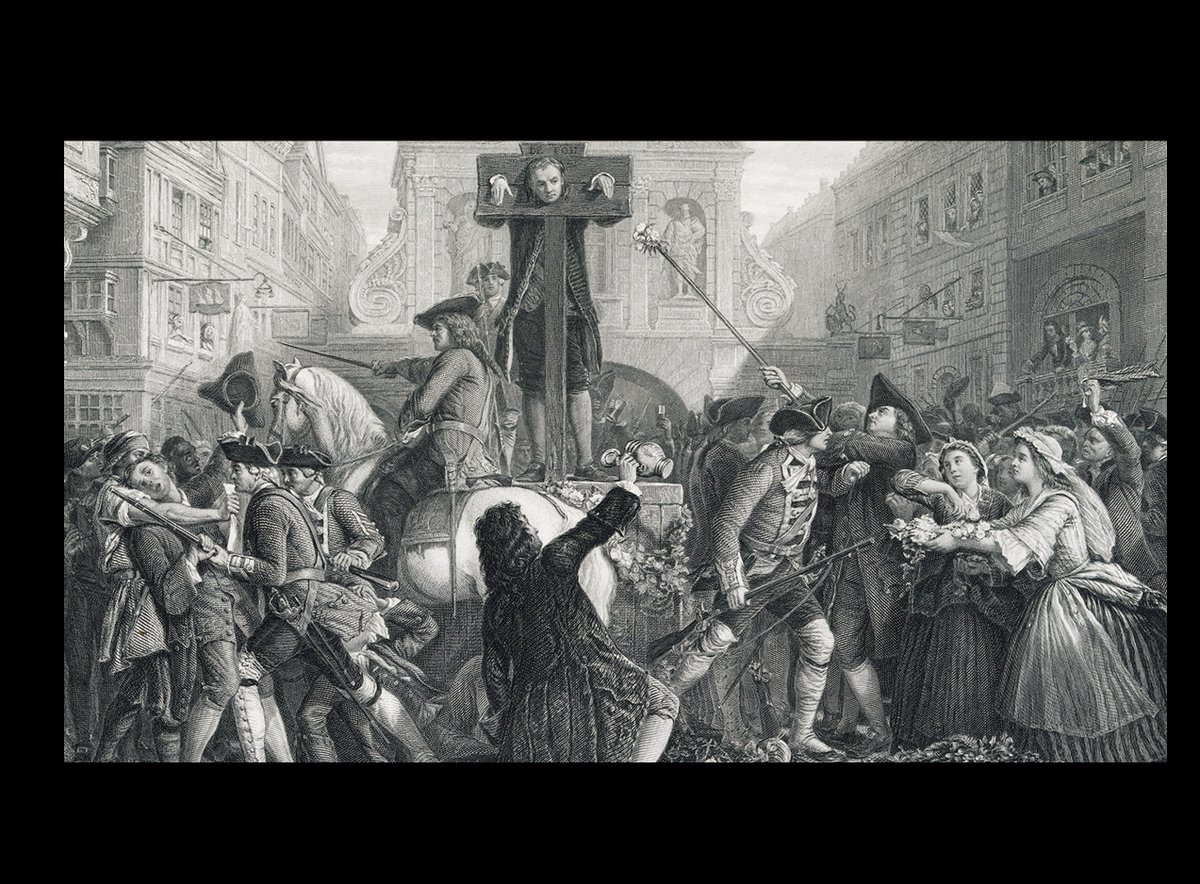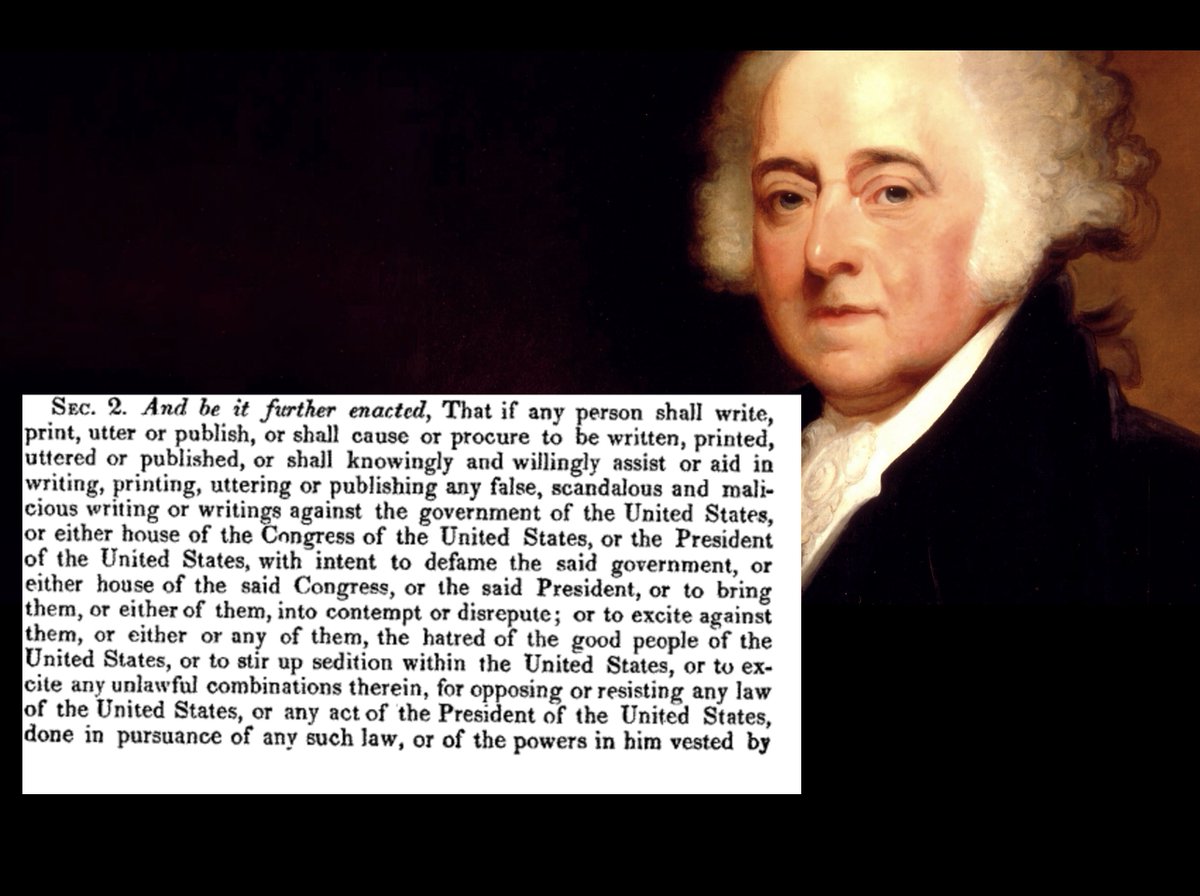1/ An editorial in the WSJ defends impeaching and disqualifying a former president by citing common law English practice and early state practice. This common law background, the writer insists, informed the original meaning of the federal Constitution’s impeachment clause.
Careful. Reading common law norms into the federal Constitution can lead to dangerous results and dangerous theories of congressional power to punish private citizens.
3/ Under common law, the English Parliament had the power to punish “seditious libel” or speech which insulted or called into question Parliament’s legitimacy. Since Parliament acted as the voice of the sovereign English people, seditious speech threatened the people themselves.
4/ Originally, some American states also followed the common law practice of punishing seditious libel. In 1798, Congress decided that it too enjoyed the common law power to punish seditious speech and passed the Alien and Sedition Acts.
5/ The Acts were a response to Congress’s fear that French Revolutionaries were trying to foment the illegal overthrow of the American government.
6/ James Madison & Thomas Jefferson objected. This was not common law England where the government is sovereign. This is America where the people are sovereign. Our Constitution must be read to reflect the principles of popular sovereignty and the right to criticize government.
7/ This right went beyond “true and fair” criticism & included outrageous speech that a partisan jury might conclude was “false” and deserving of punishment. No clause in the Constitution granted Congress power to punish private citizens for their speech.

 Read on Twitter
Read on Twitter






![8/[fin] This was the lesson of the Alien & Sedition Acts. Common law norms are not American norms when it comes to congressional power. Particularly when Congress tries to punish a private citizen because they dared to question the political legitimacy of the national Government. 8/[fin] This was the lesson of the Alien & Sedition Acts. Common law norms are not American norms when it comes to congressional power. Particularly when Congress tries to punish a private citizen because they dared to question the political legitimacy of the national Government.](https://pbs.twimg.com/media/EsgXDNmXEAE_iF2.jpg)


